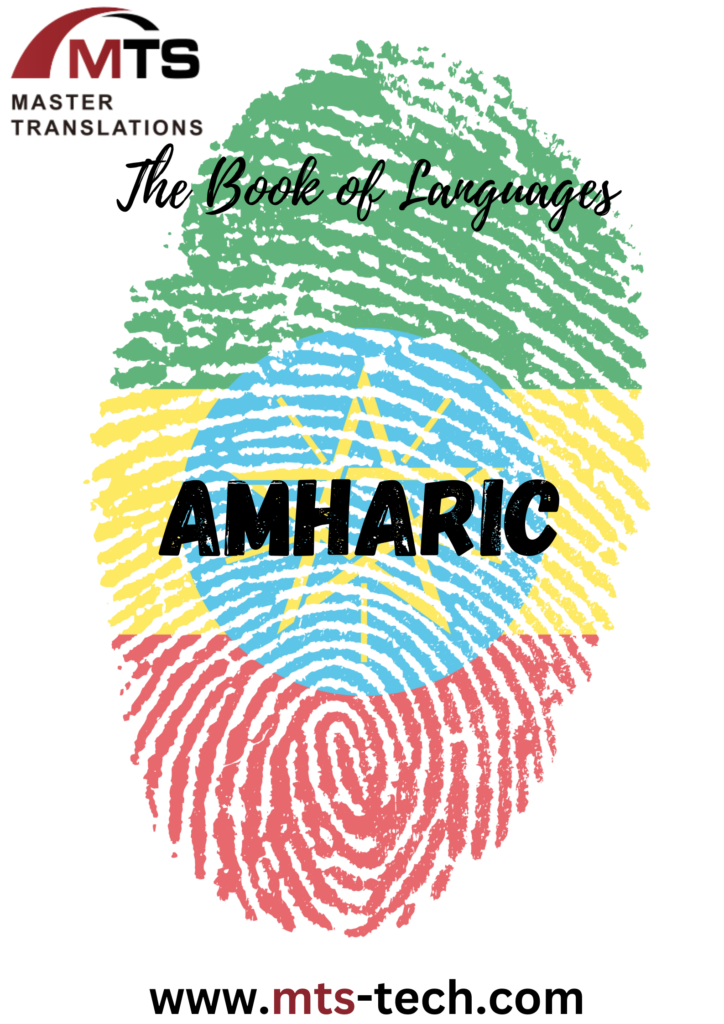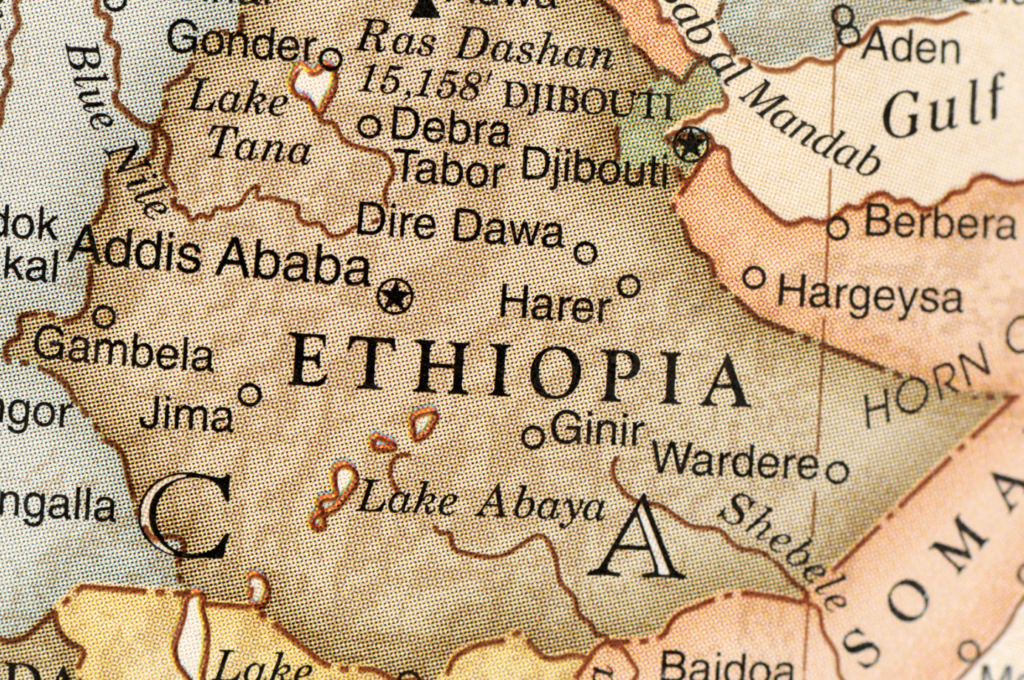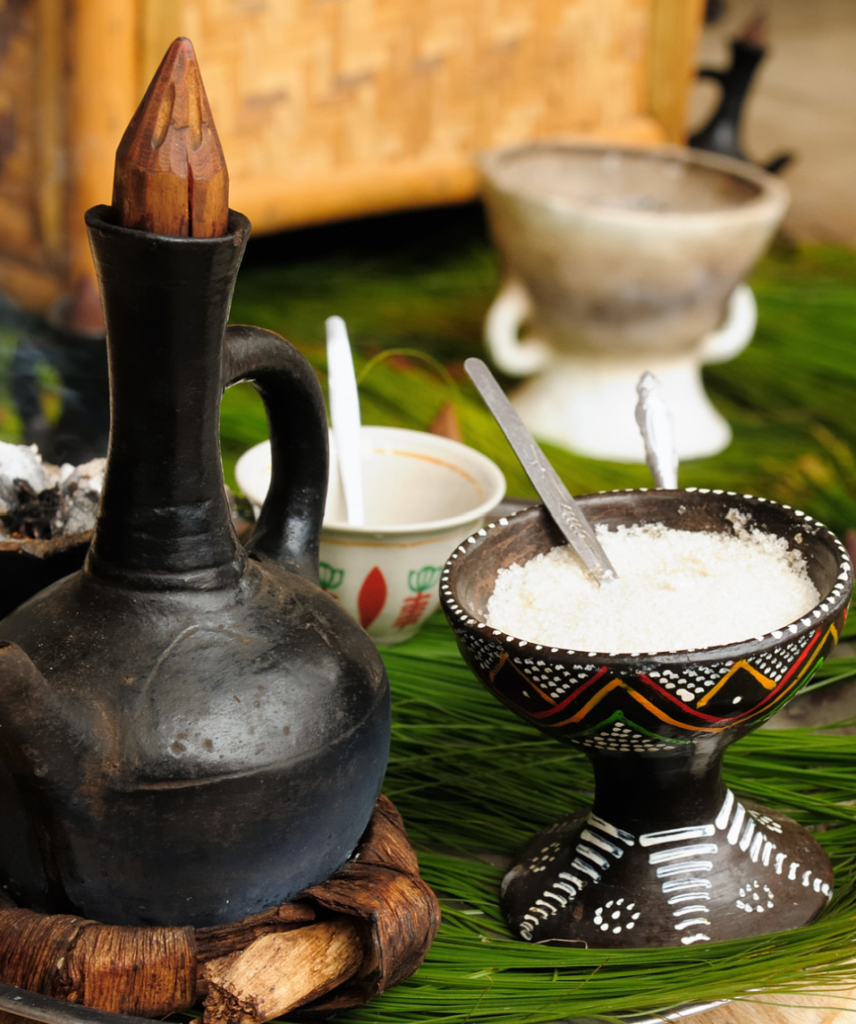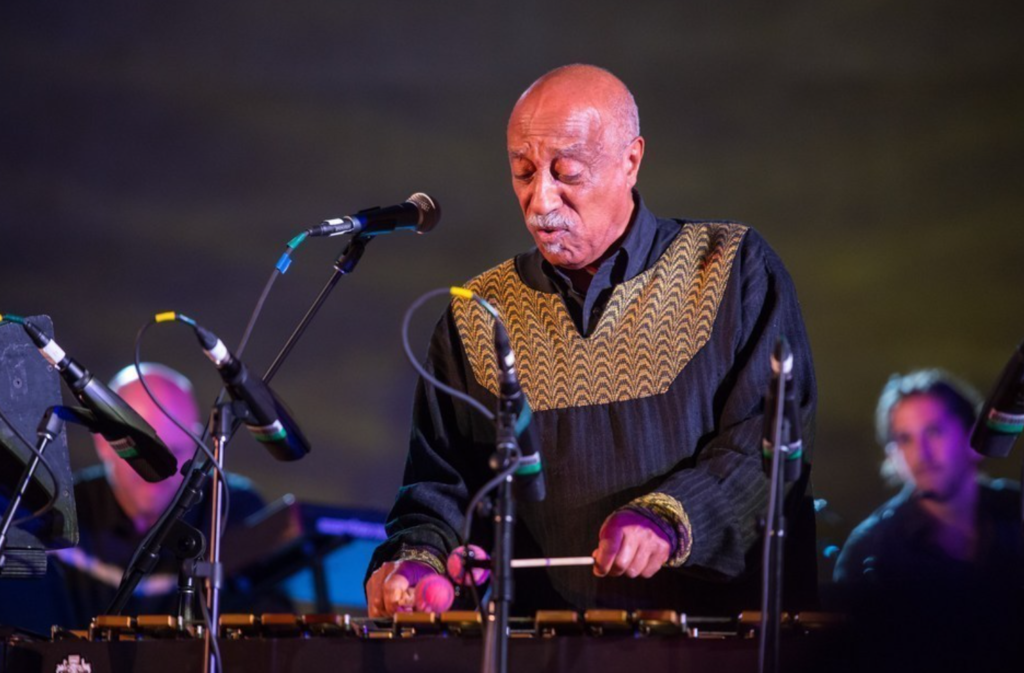
Tucked in the Horn of Africa, Ethiopia is not just home to the ancient Aksumite Empire, splendid coffee, and the enigmatic Lucy, but also to a unique language known as Amharic. With approximately 22 million native speakers, Amharic is the second most spoken Semitic language in the world, after Arabic, and serves as the official language of Ethiopia. Its rich texture and complex script give it a singular presence in the family of world languages.

The History
The origins of Amharic can be traced back to the 1st millennium BCE. It evolved from Ge’ez, the liturgical language of the Ethiopian Orthodox Church. Around the 14th century, Amharic began to take shape as a distinct language, becoming more prominent and widely used, eventually overshadowing Ge’ez. By the 19th and 20th centuries, with the rise and expansion of the Ethiopian state, Amharic had established itself firmly as the lingua franca of the nation, connecting people from diverse ethnic and linguistic backgrounds.
Words!
Amharic is more than just spoken sounds; it’s a canvas of tradition, sentiments, and chronicles. For starters, the word “ዓለም” (Alem), which translates to “world”. This term does not merely point to the physical earth but extends to the universe, life, and existence, binding all entities together. Then there’s “ስም” (Sim), which means “name”. But in Amharic, a name isn’t just a label; it often carries a story, a wish, or a legacy. Finally, we come across “ህይወት” (Hiywot), denoting “life”. This word isn’t limited to the act of living but encapsulates purpose, essence, and the journey of existence itself.
Did you know that Amharic is one of the few African languages with its own native script? Its script, called “Fidel”, is a syllabary, meaning each symbol represents a consonant-vowel combination. Another intriguing fact is that Amharic is rich in idioms, many of which are deeply rooted in Ethiopian culture and history, offering insights into the nation’s soul. Also, the language employs an entirely different calendar system! While much of the world runs on the Gregorian calendar, Ethiopia uses the Ge’ez calendar, which is roughly seven years behind.

Music!

Amharic’s musical imprint is undeniable. Ethio-jazz, a genre that emerged in the late 1960s and 70s, fuses traditional Ethiopian music with jazz, Latin, and soul rhythms, and it is predominantly sung in Amharic. Icons like Mulatu Astatke and Mahmoud Ahmed have mesmerized audiences with their deep, resonating Amharic lyrics. Songs in Amharic don’t just sound; they narrate – whether it’s tales of love, sorrow, or celebration, they paint a vivid picture of Ethiopian life and sentiments.
Learning Amharic!
Starting on the journey to learn Amharic promises to be both challenging and rewarding. The script, while initially daunting, reveals patterns and a logic that can be mastered with dedication. Plus, many find that the musical quality of the language makes it easier to remember words and phrases. With a growing number of online resources, books, and language schools focusing on Amharic, there’s never been a better time to dive into this rich linguistic tapestry. So, why not start today? After all, as the Ethiopians say, “ቀን በቀን” (Qen Be Qen), or “Day by Day”, indicating that step by step, anything is achievable!
